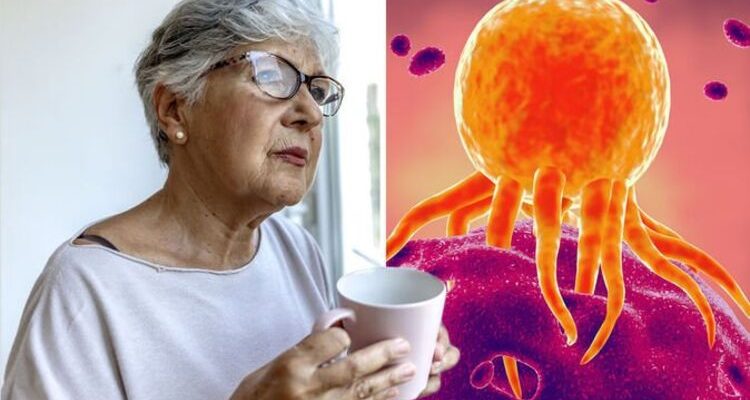Trisha Goddard discusses her breast cancer in 2018
We use your sign-up to provide content in ways you’ve consented to and to improve our understanding of you. This may include adverts from us and 3rd parties based on our understanding. You can unsubscribe at any time. More info
Recent data has suggested waiting times for cancer referrals have reached unprecedented highs since the pandemic. This has prompted health bodies to raise awareness of symptoms and preventive measures, in a bid to soften the blow in coming years. Studies have shown the disease can be interlinked with dietary factors. Some studies have found one black drink, which is often touted for its antioxidant activity, to be associated with cancer.
There is a widely held belief that black tea may reduce the risk of several types of cancer by offering protection from free radicals.
Most evidence of such claims, however, comes from animal studies, and few experiments have demonstrated equivalent effects in humans.
What’s more, in the few studies conducted in humans, results have shown that black tea “does not reduce the risk of breast cancer or any other type of cancer,” according to Breast Cancer.
In fact, research published in the BMC Cancer Journal in 2014, identified black tea as a significant risk factor for breast cancer.
READ MORE: Cancer: The tea ‘linked’ to a tripled cancer risk – ‘equivalent’ to smoking 100 cigarettes

The meta-analysis looked at forty-one prospective studies that included more than three million participants, 49,103 of whom had cancer.
The authors noted: “From the pooled overall reported risk ratios, no inverse association between tea consumption and risk of five major cancers was observed.
“However, subgroup analysis showed that an increase in consumption of three cups of black tea per day was a significant risk factor for breast cancer.”
The findings were later reinforced by a body of research published in the journal Carcinogenesis, which comprised a meta-analysis of 13 papers examining the effect of green and black tea consumption.
The authors noted in their report: “Five cohort studies demonstrated a modest increase in risk associated with black tea intake.
“The results of this meta-analysis indicate a lower risk for breast cancer with green tea consumption.”
It was concluded that the data highlighted a possible promotional effect of black tea on breast cancer.
The findings were also replicated in a large prospective study conducted in the Netherlands, which observed an increase in breast cancer risk among consumers of five or more cups per day.

But the evidence is conflicting, as separate studies have suggested black tea consumption could decrease cancer risk in some cases.
Extensive research has gathered evidence that black tea confers protective effects against cancer due to its polyphonic and antioxidant properties.
The authors of the 2021 study, published in the British Journal of Cancer, found that among breast cancer survivors, higher consumption of tea after diagnosis could be related to better survival.

In fact, previous research has shown that green and black tea polyphenols could regulate cell growth, survival and metastatic.
This activity has also been observed at DNA levels, which has significant implications for cancer prevention.
But it appears that evidence on the relationship between cancer and black tea consumption remains elusive, warranting further investigations.
Tea has long been regarded as an aid to good health, with many lines of research showing it can protect against malignant cellular activity.
Source: Read Full Article
